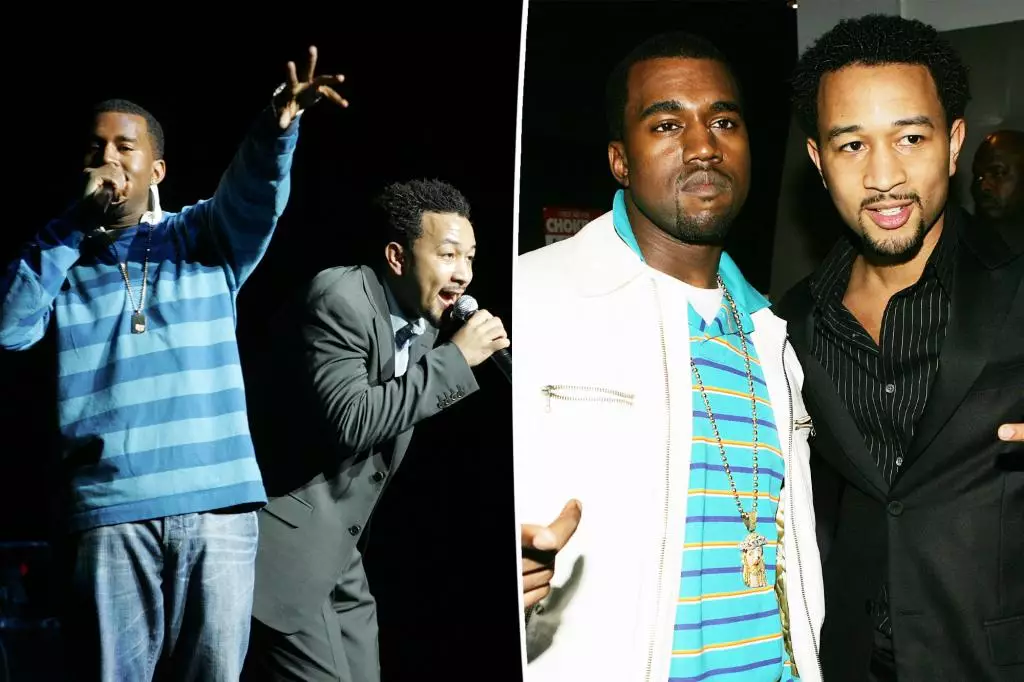In a candid conversation with the London Times, John Legend poignantly reflected on his years-long friendship with Kanye West, offering a glimpse into what once was a partnership brimming with promise and artistic ambition. When they first crossed paths in the mid-2000s, West was an indomitable force, a visionary fueled by hope and creativity. Legend shared how Kanye’s initial drive not only propelled him into the spotlight but also lifted those around him. This camaraderie laid the foundation for what they built together—an experience that transformed both of their careers.
Legend reminisced about the early days, pointing to West’s groundbreaking work on Jay-Z’s seminal album “The Blueprint,” which catapulted him to fame and set off a chain reaction that would benefit many, including Legend himself. However, the evolution of West’s character into his current state raises alarming questions about the fragility of fame and the heavy burdens carried by artists.
The Catalyst of Change and Decline
The most chilling aspect of Legend’s reflections centers on the stark contrast between Kanye’s past optimism and his recent provocations. Once a beacon of creative intellect and passion, Kanye’s trajectory took a disheartening downward spiral marking a point of no return for their friendship. Legend acknowledged that the cracks began to show following the tragic death of Kanye’s mother in 2007, a loss that many speculate catalyzed significant changes in his mental health and outlook on life.
Despite the trials Kanye has faced, the escalation of his more troubling behaviors, particularly his aggressive antisemitism and affinity for extremist symbols and ideologies, is something that has shocked even those closest to him. Legend’s reflections serve as a reminder of how deeply personal losses can ripple through family and friendships, transforming vibrant individuals into shadows of their former selves.
The Descent into Darkness
Kanye West’s recent outbursts, including his bizarre statements on social media and even public praise for Adolf Hitler, paint a bleak picture of his current mindset. Legend’s remarks indicate that this isn’t just a phase; it seems to be an alarming, unchecked descent into darkness. The Kanye West of today, who professes love for figures synonymous with hate, starkly contrasts with the creative genius who championed diversity and inspiration in the music industry.
It’s easy to dismiss these changes as mere celebrity antics, but they reflect more profound implications about mental health, public persona, and the responsibilities that come with influence. Legend’s sentiments capture a painful reality; watching a friend deteriorate in public can feel like an emotional death, leaving those who care grappling with feelings of helplessness.
The landscape of celebrity culture adds layers of complexity to these scenarios; West’s behavior generates both outrage and fascination, drawing millions into discussions about ethics, accountability, and the power of words. Legend’s thoughts cut through the sensationalism, inviting a more in-depth examination of Kanye’s struggles and the toll they take on personal relationships and public perception.
This complex interplay of friendship and fallout highlights an urgent need for compassion, understanding, and, perhaps most importantly, support for those wrestling with their inner demons in a world that thrives on spectacle.

